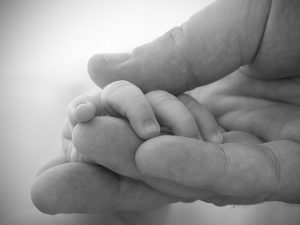 On Facebook the other day a friend “liked” one of her friend’s posts, so it appeared in my news feed. I opened the link, read the article and started crying.
On Facebook the other day a friend “liked” one of her friend’s posts, so it appeared in my news feed. I opened the link, read the article and started crying.
You would have too. It was an article by a former social worker in Durham County, N.C. on what it was like to work in child protective services (CPS). Was. He quit years ago. He was burned out, frustrated over lack of resources, etc. He wondered if the work he did mattered.
Here’s an excerpt:
When I was in grad school, I immediately began interning at CPS. During my interview for the internship, the social worker who would become my supervisor asked me if I was aware there would be child abuse involved. I stared blankly at him and told him I understood.
And boy, is there child abuse. There are babies with skull fractures. There are toddlers with tiny little lifetimes of healed fractures. There are newborns abandoned at the hospital. There is the ever-present hat trick of substance abuse, domestic violence, and mental health, and the families who just really, really need help. … There is multigenerational abuse, the abuse so entrenched in families that we cannot have the grandparents care for the children while the parents are in treatment because the grandparents have child abuse charges from when the parents were little. There are grandparents telling parents they need to just get over being molested because it happened to them too and they turned out just fine.
And, hopefully not too often, there are the fatalities. The ones where you shut your office door and you cry, because you do not know what else to do because a kid died and kids aren’t supposed to die. The ones where maybe the family did have a history with CPS, but there was nothing tangible enough for you to base a legal case on but you knew there was something and you wanted to scream but I know this is something, I just know it, but I can’t prove it, but since you couldn’t prove it you couldn’t do anything and now a kid is dead.
When I finished reading the brutal piece about social work, I thought about people who work in CPS and how tough that job must be. How do they not walk around shell-shocked, cynical or depressed? I wondered what might have convinced this amazing former social worker to stick with it?
Then I remembered something we had just announced an initiative to reduce childhood fatalities stemming from abuse. Using SAS to analyze six years’ worth of data on a million children, analytics expert Albert Blackmon identified ways investigators can better predict the needs of families in crisis.
He also identified factors that indicate a child’s risk of dying of abuse or neglect. One finding struck me: Children who have contact with a CPS case worker were 90 percent less likely to die.
Would having this knowledge have prevented the social worker in Durham from leaving his post? Maybe not. But I’m proud that my employer has a role in helping others like him be more effective -- and encouraged to know that their efforts matter.
Our initiative to protect children is growing. This is how we change the world. What examples do you have of SAS making a difference?
Image by: Giles Cook // Licensed by: Creative Commons

2 Comments
Thanks, Bev. This is a wonderful example of how SAS makes this world a better place for all of us. You asked for other examples, and we need look no further than the NC News and Observer on this very morning. You'll enjoy reading about how SAS analytics is helping to save lives by providing data to EMS workers: http://www.newsobserver.com/2014/08/07/4057741/wake-county-ems-finds-that-longer.html?sp=/99/100/&ihp=1
Thank you, Caroline. That EMS story is awesome! It's part of my next post.